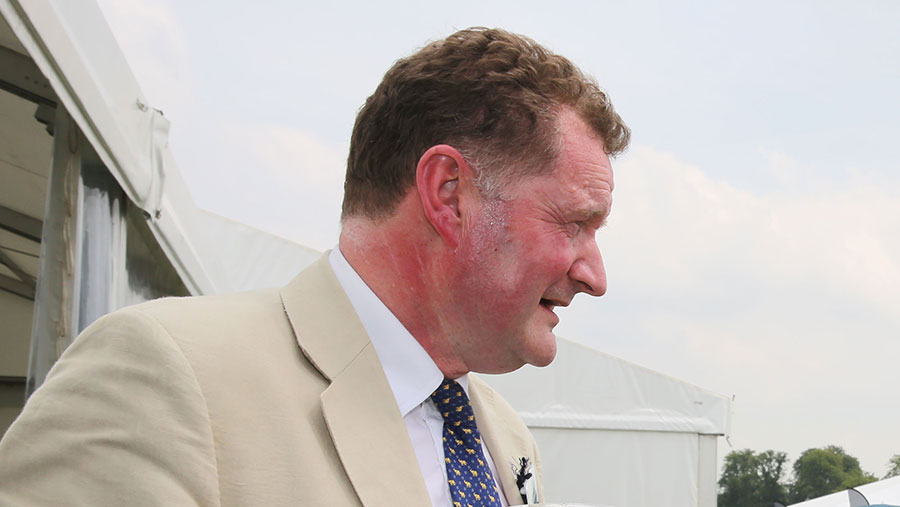Farm jobs ‘at risk’ without plan B for EU exit
 Ross Murray © Tim Scrivener/REX/Shutterstock
Ross Murray © Tim Scrivener/REX/Shutterstock Rural business leaders have again urged the government to prepare a “plan B” that would give farmers certainty in the event that the UK votes to leave the European Union.
The Country Land and Business Association (CLA) said farm jobs and investment would be at risk unless ministers prepared for the possibility of an EU exit following the in-out referendum on 23 June.
See also: Farm leaders demand answers to ‘great unknowns’ of EU exit
Ministers must be ready to give immediate commitments to farmers and rural businesses after the referendum on key issues vital to the continued health of the rural economy, said a CLA report.
Published on Wednesday (9 March), the report sets out what the CLA describes as critical elements that the government should be planning for whatever the outcome of the in-out referendum.
The document is called Leave or Remain: The Decisions that Politicians must make to support the Rural Economy (PDF).
It emerged earlier this year that no Defra officials are working on plans for agriculture should the UK decide leave the EU.
The CLA report calls for reassurances on EU trade, direct payments, regulations and access to labour.
But the government argues that it is up to “leave” campaigners to make the case for an EU exit.
Farmers need certainty
CLA president Ross Murray said: “Whatever your views on the future of the UK’s relationship with the EU, it is clear that the rural economy has been shaped by agricultural and environmental policies drawn up at EU level since we joined.
“Through the single market, Europe is an important destination for our products. The EU manages vital direct land management payments to farmers, and workers from the EU are critical to our agricultural labour force.”
For more than 40 years, the EU had provided the regulatory framework that governed the way UK farming businesses operated, said Mr Murray.
It was also the basis of significant investment decisions. Farmers needed certainty and answers.
Most urgently, farmers needed confirmation that CAP payments would continue until the end of the budget period in 2020, said Mr Murray.
“If the UK votes to leave, there are immediate commitments that will need to be made by government to ensure the continued health of farming.”
Defra minister George Eustice is campaigning for the UK to leave the EU – a position which puts him at odds with Defra secretary Liz Truss, who believes the UK should remain an EU member.
Mr Eustice has outlined his own fledgling plans for agriculture following an EU exit. But industry leaders have cast doubts on the viability those proposals.
Acknowledging that government may not wish to reveal its own official plans before polling day, Mr Murray said it was still critical to know that the right plans were being formed.
“Failure to plan for Brexit will put rural jobs and investment in the rural economy at serious risk,” he added.
“If the UK votes to leave, ministers will need to confirm they will develop a UK agricultural policy that ensures the necessary investment in farming and land management continues outside the CAP, up to 2020 and beyond.”
The CLA report does not advocate a position on whether the UK should leave or remain in the EU, but sets out what the organisation believes ministers must decide and by when.
Mr Murray said: “If we vote to remain, there are still critical commitments that ministers will need to make.”
